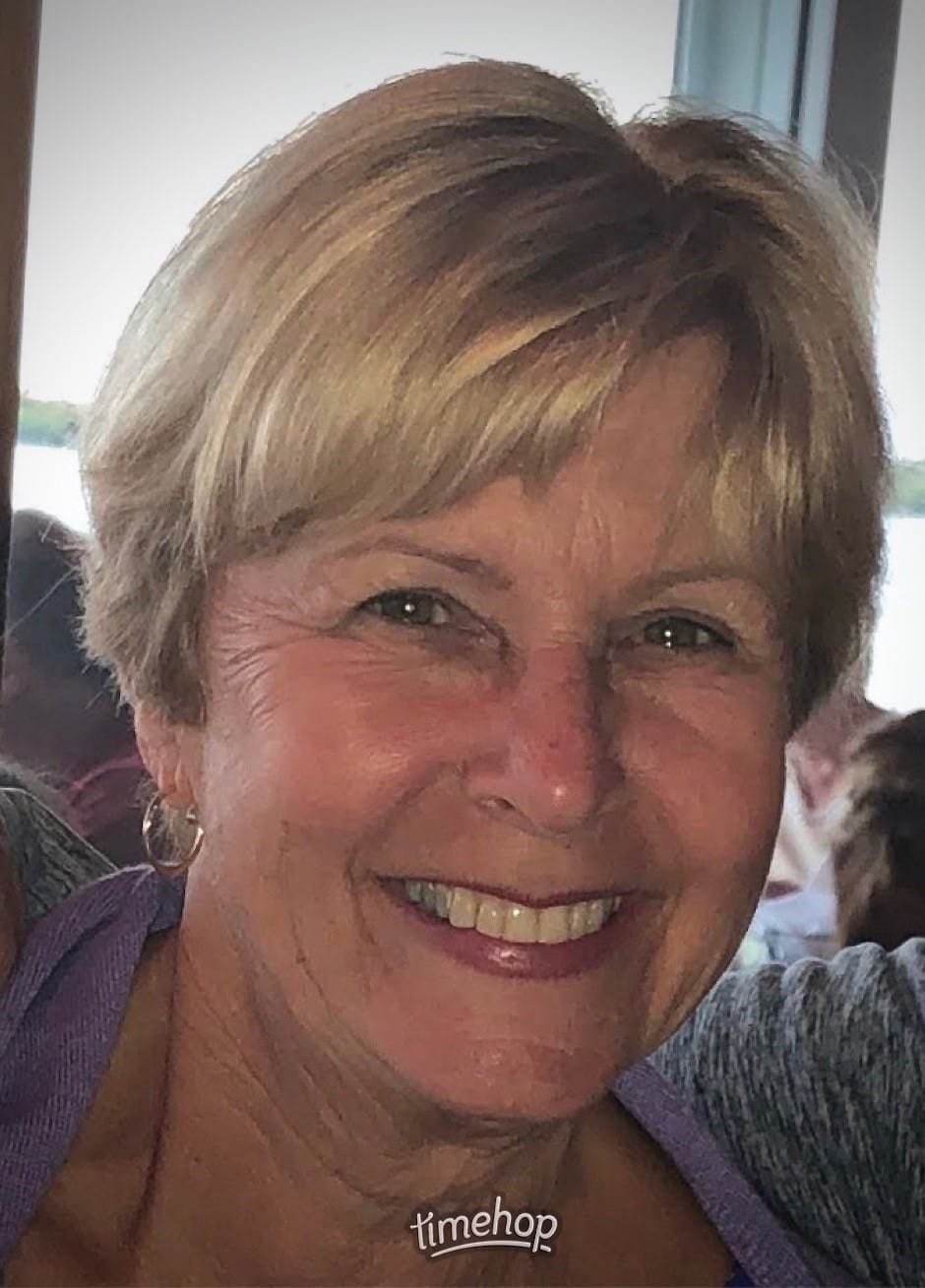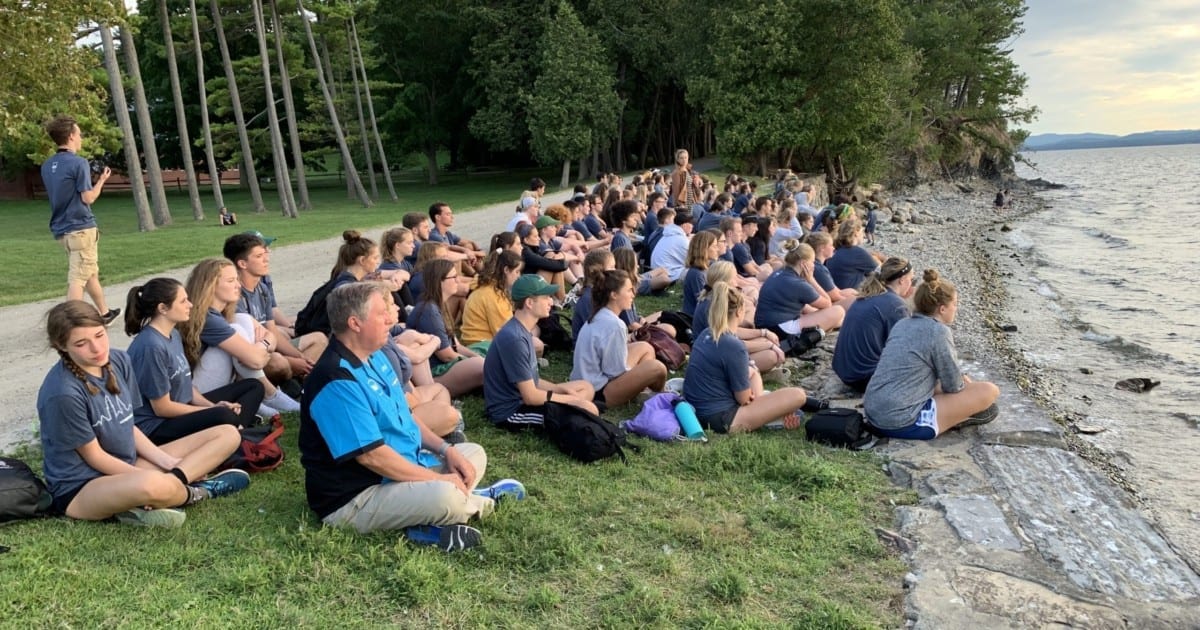After a long career in college student health, Gerri Taylor now finds herself at the center of the management of its current crisis. As the Co-Chair of the COVID-19 Task Force of the American College Health Association (ACHA), Taylor co-leads a multidisciplinary team tasked with advising colleges on everything from re-opening their campuses, to protecting high-risk students, to advocating for vaccinating COVID facing health center staff against the pandemic.
As a spokesperson for all things COVID and college health, Taylor has been quoted in dozens of national news outlets, appearing on the Today Show, Inside Higher Ed and in the New York Times. But despite her recent brush with celebrity, Taylor is not forgetting where she came from.
“This has been an opportunity for me to highlight the tremendous work that is going on in college counseling and health centers,” she said. “Every interview I do, I make sure to emphasize that.”
Taylor recently retired from her role as Dean of Health, Counseling and Wellness at Bentley College in Massachusetts where she directed a collaborative health model that integrated mental and physical health as well as health promotion – a model she feels best addresses the changes that have occurred in college health over the past 30 years.
“The quality and level of healthcare has increased dramatically over the time I’ve been in college health,” she said. “And that reflects the fact that we have students at college now that could never have been able to be here years ago – students who are undergoing cancer treatment, students with cystic fibrosis students with heart, liver and kidney transplants. On the mental health side, we have students who suffer from depression, bipolar disease, students with autism, a whole range of mental health challenges.”
Taylor believes students are best served on their campuses where practitioners work collaboratively to help get them back to their studies as quickly as possible. But to do so, she says, colleges need to consider the wellbeing of the whole student and the whole community.
“It is inefficient and ineffective to work in silos.”
Taylor is also a proponent of close collaboration between administrative leaders and those on the frontlines, saying decision-makers need to understand what students are presenting with and not just when a crisis occurs. She believes student health professionals need to feel valued by the school community, particularly at a time when the combination of the student mental health crisis and COVID-19 have many caregivers feeling under siege.
Taylor’s hands-on experience has been instrumental in leading the industry response to the COVID-19 crisis where science, health promotion, and practice have become enormous factors. She is very proud that she and co-chair, Anita Barkin’s team of 30 or so professionals from across the country are experts in their areas, inter-disciplinary and reflect schools of various sizes and profiles.
Since March, the Task Force has issued two sets of re-opening guidelines, as well as reports and/or surveys on numerous topics including contact tracing, testing, quarantine practices, vulnerable students, holiday break precautions, and, of course, mental health.
In early 2021, Taylor’s efforts turned to vaccine distribution where she is once again advocating for her former colleagues at college counseling and health centers. In January, the ACHA recommended that college health professionals be included in states’ priority vaccination distribution phases. The task force has also provided guidance on issues such as appropriate cold storage, adequate locations for immunization clinics, security concerns, and health care staffing.
More from the Frontlines
Taylor says the Task Force will continue to advise colleges even as light emerges from the COVID-19 tunnel. Meanwhile, she is excited to pursue a new initiative that combines her personal experience with her industry-wide connections to provide a platform for thought leadership among college counseling and health center staff. It is called “FRONTLINES,” a sponsored feature of the Mary Christie Quarterly where Taylor will interview practitioners working directly with college students.
As an advisor to Christie Campus Health, a college mental health services company, (and a sponsor of the Mary Christie Foundation), Taylor will produce the feature four times a year.
“The purpose of FRONTLINES is to share the experiences, knowledge and insights of frontline counseling and health care staff with other thought leaders in higher education to bring about a greater sense of understanding and appreciation of the complexities of the responsibilities of these campus stakeholders.”
Taylor will debut the feature in April’s issue of the Mary Christie Quarterly with a captivating inside look at a college health professional in the “trenches”.
When asked about the field’s response to the feature, Taylor said, “In my experience, student health professionals will do all they can to improve student outcomes and if sharing best practices and new approaches can help do that, they will surely take the opportunity.”



